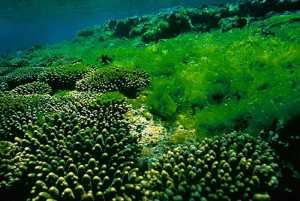 AccliPhot, the new EU consortium based at the University of Aberdeen, has all the right ingredients to find a way to reduce the growing consumption of coal and replace it with renewable energy sources.
AccliPhot, the new EU consortium based at the University of Aberdeen, has all the right ingredients to find a way to reduce the growing consumption of coal and replace it with renewable energy sources.
Scientists are now searching for potential uses of seawater for biofuel production. The aim is to improve the traditional algae farming, which demands high amount of water and might create a problem of water scarcity.
To solve this issue, the new consortium will develop methods to use seawater, as it is highly abundant and could provide the much needed ecosystem for algae growth. The idea came forward, because of the urgent need to find efficient ways to supply energy, which do not compete with other resources.
This type of research has already been conducted by scientists at the U.S, where the California-based Aurora Biofuels showed how to grow algae in open saltwater ponds in Australia
In this case, however, using open ponds created various land use issues, as the ponds had to be dug.
Dr. Oliver Ebenhoeh, one of the researchers at the University of Aberdeen, stated that the water used for growing algae is that which cannot be used for irrigation, such as seawater.
AccliPhot wants to cultivate algae in bioreactors, which can be located virtually anywhere, so that both problems are avoided.

































